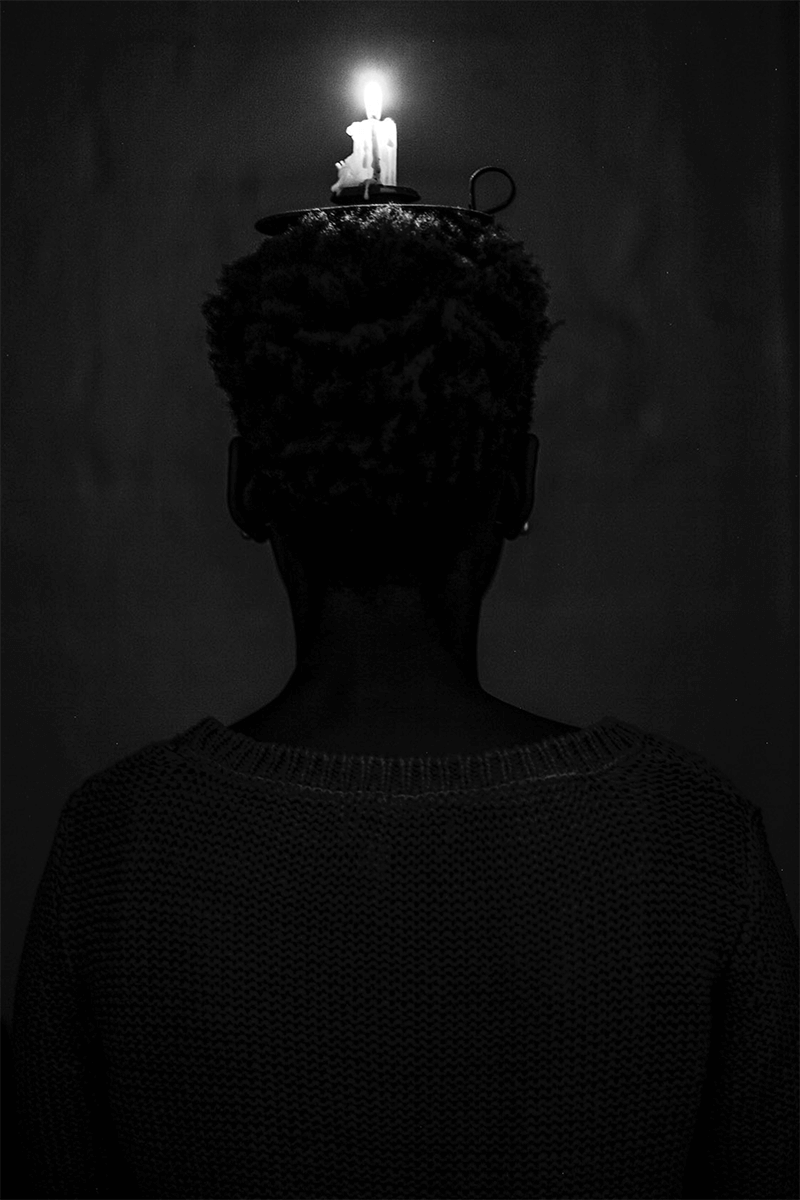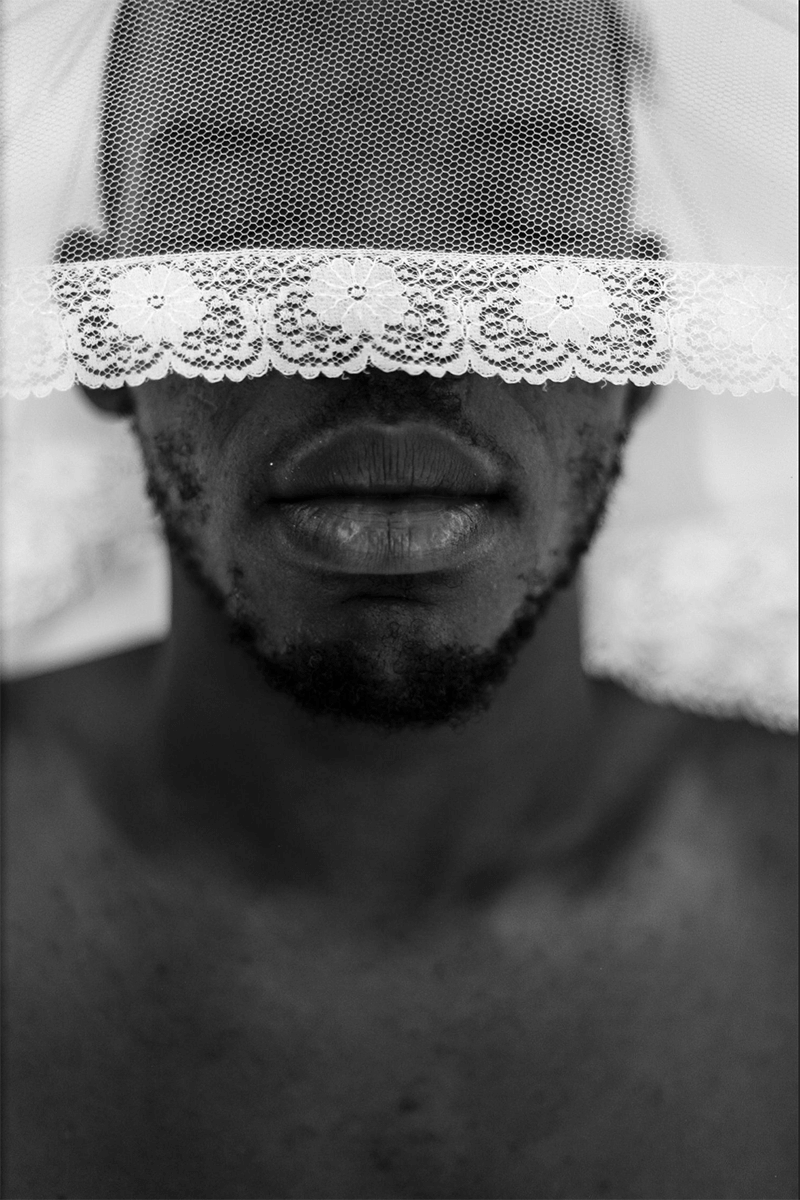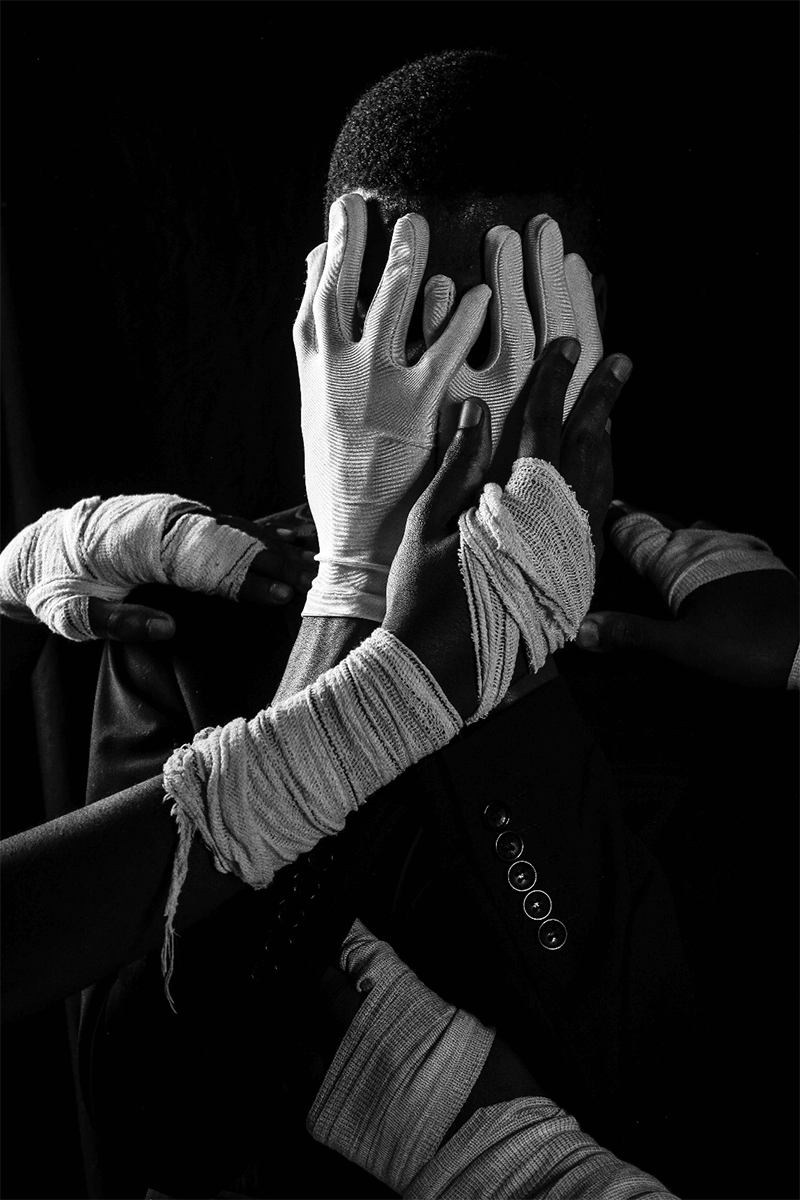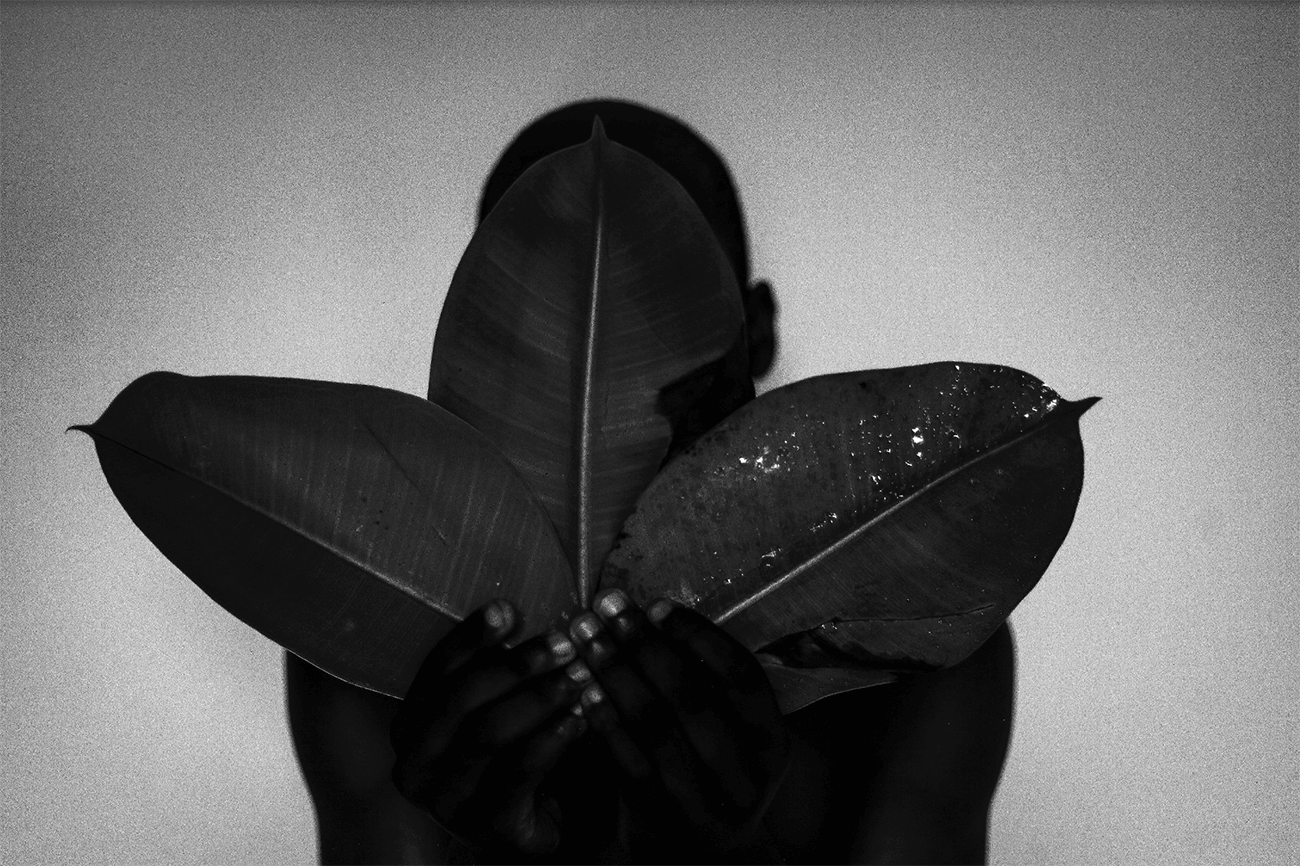Mpumelelo Buthelezi, the prolific South African photographer, stands as a testament to the power of art in its ability to evoke introspection, reflection, and catharsis. Emerging from Johannesburg, Buthelezi's achievements in photography and the global recognition he has garnered echo his profound commitment to exploring and transcending boundaries—both physical and thematic.
Boasting a robust repertoire that finds its foundation in social activism, religion, and human resilience, Buthelezi’s oeuvre is an ever-evolving canvas, where documentation meets storytelling and activism. From residencies spanning the globe—including his recent tenure with Rele Arts Foundation in Nigeria to the esteemed Centro Luigi Di Sarro in Italy—Buthelezi's journey is indicative of an artist continually seeking to break new ground.
Emergence in Isolation
Conceived amidst the throes of a global pandemic, Ukuzihlukanisa offers a deep dive into Buthelezi’s psyche, chronicling his spiritual musings during the days of imposed isolation. The bedroom, traditionally a sanctuary of rest and privacy, transforms into a dynamic studio, and the everyday materials strewn around—bubble wrap, tin foil, bed sheets—become the instruments for his self-reflection.
The series, predominantly in black and white, exhibits a distinct mastery of light and contrast. Buthelezi's manipulation of these elements adds depth, allowing the viewer to transcend the ordinary and venture into the metaphysical.
A Quest for Purity


"ikhandlela eliphilisayo" and "Engcwele" by Mpumelelo Buthelezi
Ukuzihlukanisa does more than document a personal journey. It raises profound questions, echoing the existential angst experienced by many during these unprecedented times. Can humans reclaim a sanctified state akin to the sinless beings described in sacred scriptures? And in seeking such purity, do we find a way to cope with the profound disruptions and tragedies unleashed by the pandemic?
The pieces within the collection, each powerful in their narrative, offer glimpses into Buthelezi’s explorations.
Literally translated, "ikhandlela eliphilisayo" means "the candle that gives life." In this piece, Buthelezi captures the dwindling flame of a candle atop a man's head, both of whom are enveloped in shadows. The dim light from the candle is the only source of illumination against the all-consuming darkness. This serves as a potent metaphor for hope, resilience, and the enduring spirit of humanity. The choice of placing the candle on the head could suggest the power of the human mind, its ability to remain a beacon even in the face of adversity. The almost extinguished candle speaks to the fragility of hope but also its persistence. It’s a meditation on the transitory nature of life, and yet, the eternal spark of hope that resides within.
The title "Engcwele" refers to "holy" or "sacred" in Zulu. This artwork,perhaps the most intimate, portrays a man, his eyes serenely closed, as if in deep introspection or prayer, shielded behind a contrasting white lace veil. The veil, often associated with sanctity and purity in various cultures, could symbolize a barrier between the mundane and the divine, the seen and the unseen. The obscured face invites viewers to contemplate the notion of hidden divinities within every individual, emphasizing the sanctity of the human spirit.


"Zimboze 1" and "Vala amehlo" by Mpumelelo Buthelezi
"Zimboze 1" stands in stark contrast to the others, focusing on abstraction rather than detail. The blurred black shadow on a white wall might initially come across as elusive, but it's this very obscurity that's its strength. The shadow, devoid of distinct features, becomes a universal symbol, representing any and every individual. It speaks to the fleeting nature of existence, the transient moments that blur past us, and the ephemeral nature of memory and life itself.
In Zulu, "Vala amehlo" translates to "close your eyes." This piece is both haunting and profound. Multiple hands, wrapped in pristine white bandages, cover the face of a black man. The bandaged hands could be seen as both protective and restrictive. They shield the man from the external world, yet simultaneously blind him, suggesting themes of protection, isolation, and perhaps even self-imposed ignorance. The image is a potent commentary on society's collective response to trauma, often choosing to 'close our eyes' to harsh realities, seeking solace in the cocoon of denial.
A Journey Beyond the Self
While Ukuzihlukanisa begins with Buthelezi’s introspective journey, it soon encompasses a broader spectrum of humanity. By inviting friends into his makeshift studio, he underscores the universality of the questions he grapples with, and in doing so, elevates the series from a personal testament to a collective exploration.
In essence, Buthelezi’s artworks in this series are more than mere photographs. They are visual manifestations of deep introspection, a journey within, and a quest for understanding the dualities of life — light and dark, seen and unseen, transient and eternal. Each piece serves as a reflective mirror, urging viewers to embark on their own introspective journeys. Through these artworks, Buthelezi communicates the complexities of the human experience, especially during a time of global upheaval, reminding us of our inherent resilience, fragility, and the profound spiritual quests that often lie beneath the surface.
As viewers, we are left not just with the stunning imagery, but with an invitation—to reflect, to question, and perhaps, to find our own answers in these uncertain times.
You can find out more on the artist's Instagram
